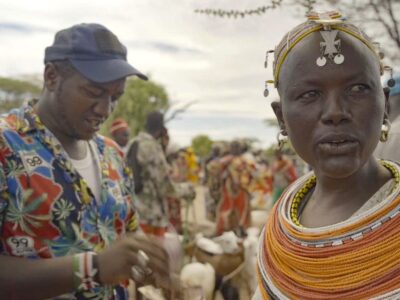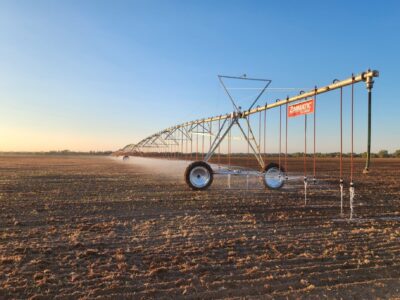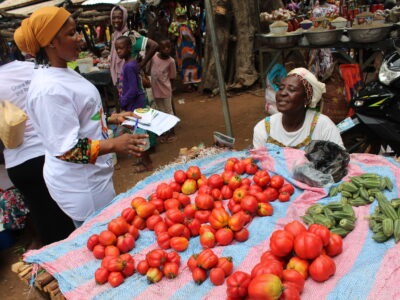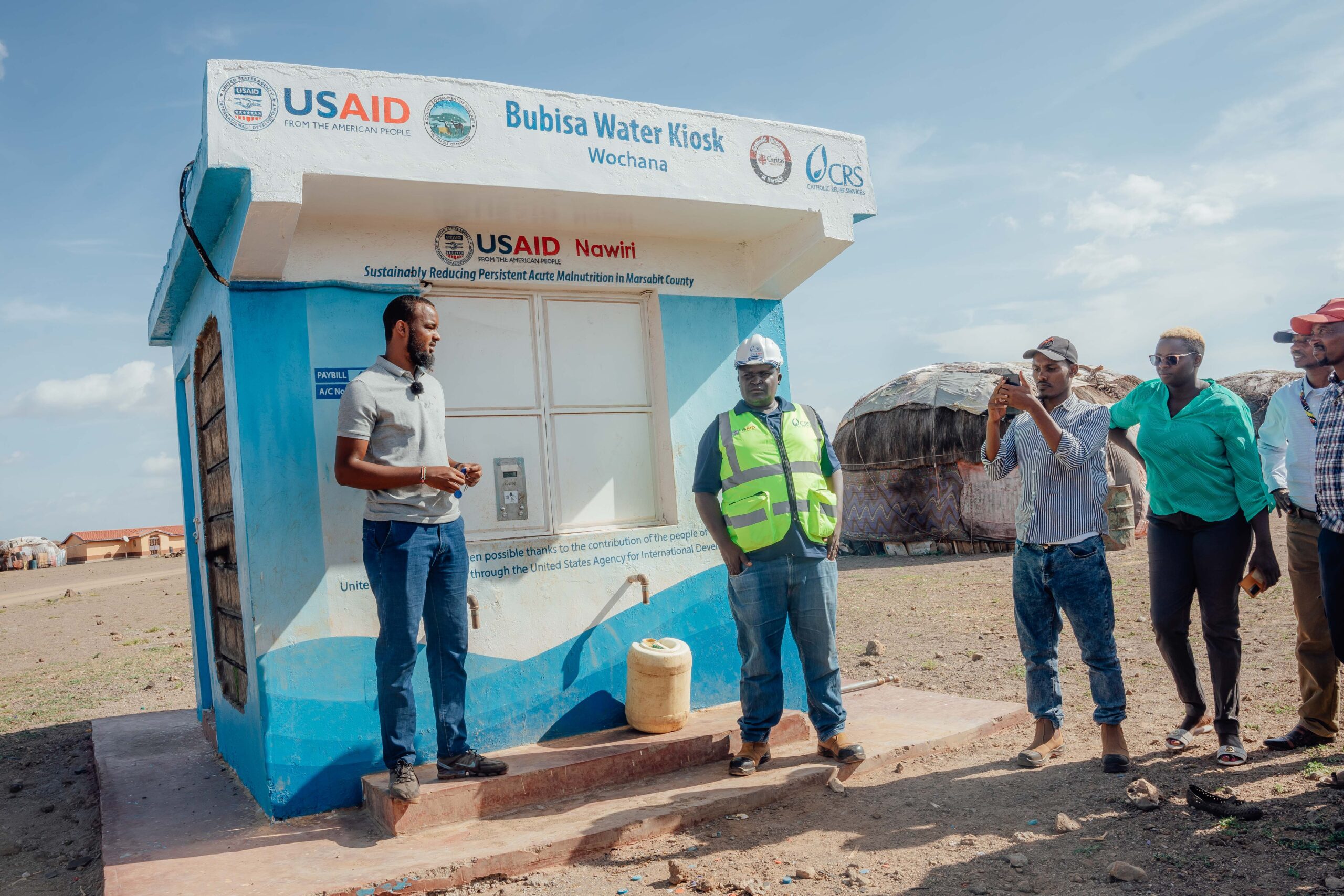
In the Chalbi Desert of Marsabit County, Kenya, lies a village called Bubisa. For many years, access to clean water was a headache in this village. Each day, over 1,200 households grappled with water scarcity, walking more than 10 kilometers in search of the scarce commodity from three boreholes, the main source of clean water in the village. Once found, the women, who mostly bore the burden of fetching water for household consumption, queued for hours before it was their turn to fetch water from any of the three available boreholes.
After carrying the water home, it was time to walk yet another long distance and join the queue to fetch water for a second time, then a third, and a fourth. This time-consuming practice limited their ability to participate in educational and economic activities.
Recognizing this challenge, partners of USAID’s Partnership for Resilience and Economic Growth (PREG) in Marsabit County embarked on a collaborative journey to bring clean, sustainable water to Bubisa village. With technical support from the USAID Resilience Learning Activity (RLA), the PREG mechanism brought together USAID implementing partners, government entities, and other development partners to collectively upgrade and automate a borehole for residents of Bubisa and neighboring villages.
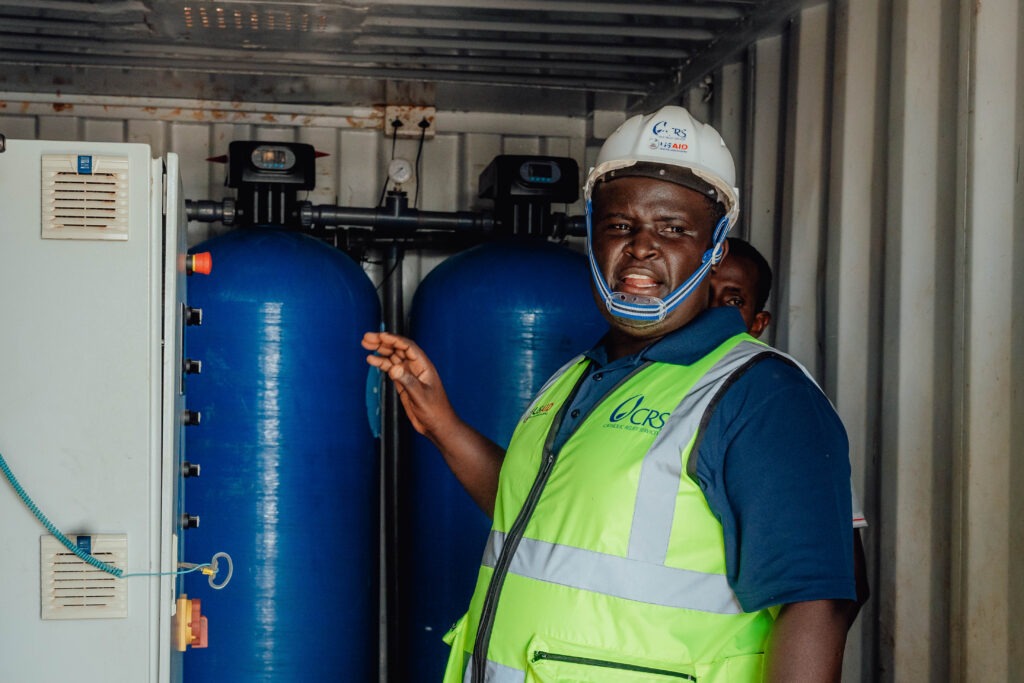
Contributions from Collaborating Partners
Building the Bubisa water project involved partners selecting a location based on identified needs and priorities. Thereafter, USAID implementing partners, including the Pastoralist Community Initiative and Development Assistance (PACIDA), USAID Nawiri, Cargo Human Care, Kenya Resilient Arid Lands Partnership for Integrated Development (Kenya RAPID), and RLA, together with the Marsabit County government and a private actor, Maji Milele, contributed resources and expertise to build the water system.
To achieve this, PACIDA invested KES 4.5 million to drill a borehole and fence it. Cargo Human Care provided a KES 22-million water treatment system that uses reverse osmosis to purify water according to the standards required by the Kenya Bureau of Standards.
USAID Nawiri installed pipes that distribute water to the residents of seven villages and four institutions and constructed an elevated 50m3 steel storage tank, seven water kiosks, and prepaid meters that record water consumption. USAID Nawiri also trained the community on financial management, investing a total of KES 17 million.
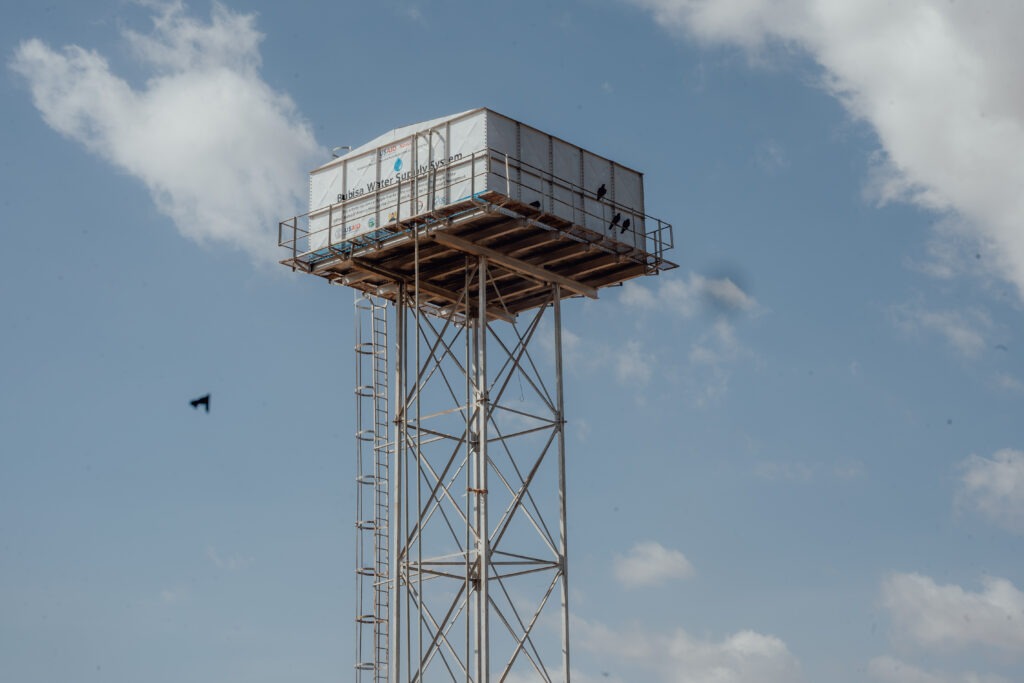
Kenya RAPID constructed an elevated 50m3 steel storage tank, one water kiosk, and prepaid meters, investing a total of KES 4 million.
The Marsabit County government provided land as an asset and installed one bulk prepaid meter. The government continues to provide technical support for the operation, maintenance, and governance of the water project.
Maji Milele constructed water ATMs that serve as water collection points for the community and automated the entire water facility.
As the secretariat of the USAID PREG mechanism, RLA coordinated the activities of the partners. RLA continues to coordinate joint work planning, implementation, and monitoring of activities to ensure that it functions as intended. The local community works together in water management committees that govern the project and collect revenue from the sale of water.
How the Project Works
The Bubisa water project now provides 11,000 liters of safe water per hour. The project has eight water kiosks run by community members, who collect revenue through automated systems. The knowledge acquired from financial literacy training helps them to keep records and account statements with detailed expenses and revenues. The project uses profits to pay for maintenance, staff salaries, and other community development initiatives.
Driving Positive Impact Across Sectors
The Bubisa water project has increased the number of people accessing clean water services in Marsabit County. While the community started with one automated water kiosk, the project has led to the development of 100 more kiosks in the county, increasing access to essential services.
The automation of the Bubisa water system has eliminated water cartels, made the project’s management more transparent and efficient, and increased revenue from the sale of water from KES 3,000 to 20,000 per day.
Further, the project has created 3,200 jobs and stable income for women and youth, who form part of about 32 welfare members who manage the water kiosks. Without having to trek long distances in search of water, women now have time to work and engage in family care and community activities, where they contribute to making decisions that affect them.
The Bubisa water project shows how partners can achieve optimum impact when they collaborate to jointly plan, implement, and monitor projects and investments.
Learn more about the USAID Resilience Learning Activity (RLA).
Learn more about our work in Kenya.

